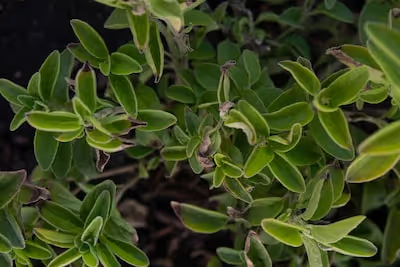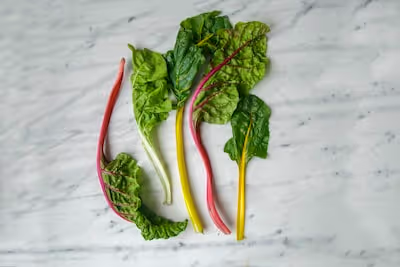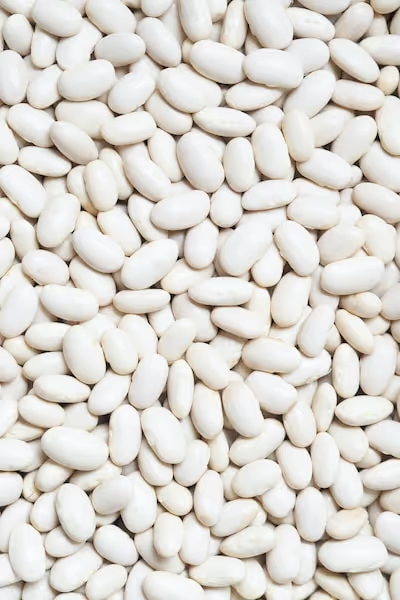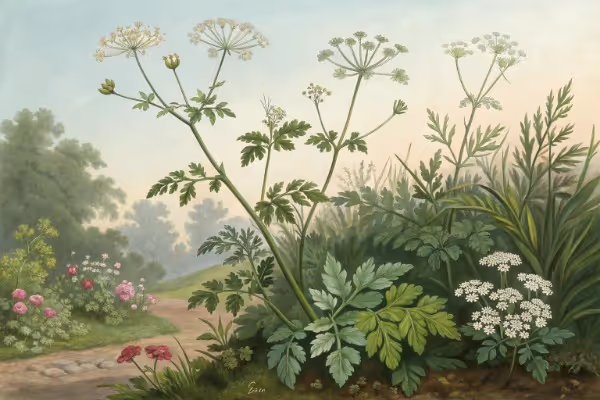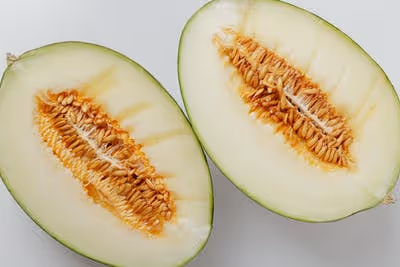Growing Fennel: Essential Tips for a Healthy, Productive Crop
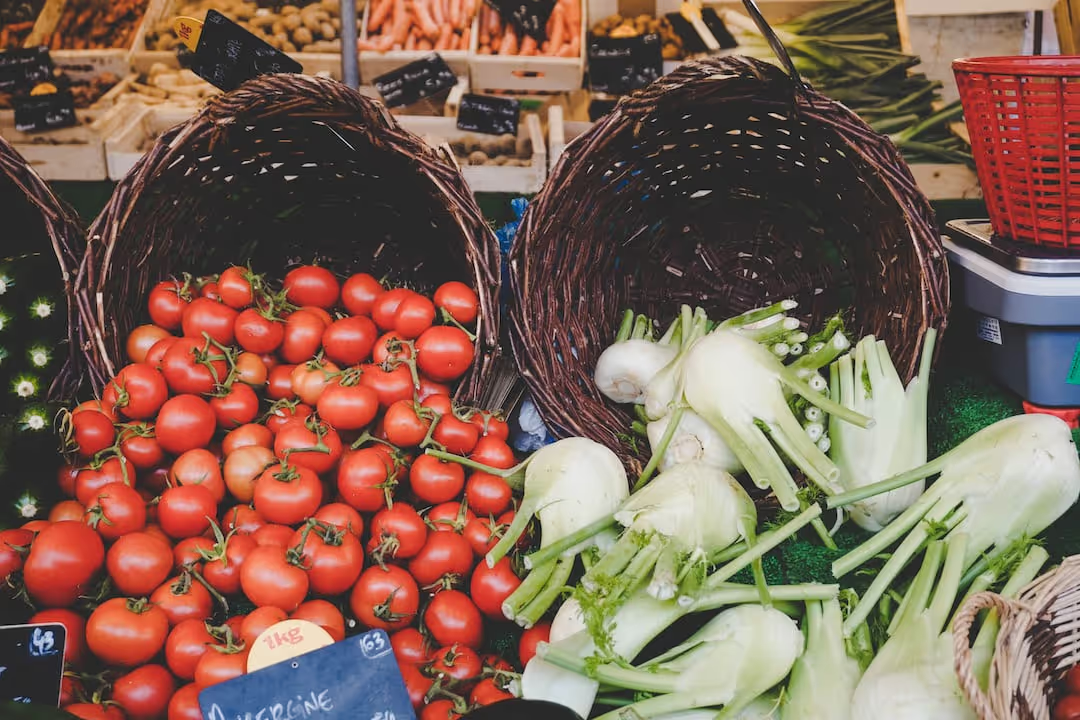
Growing Fennel
Growing fennel rewards your backyard with flavor-packed bulbs and feathery fronds perfect for cooking. Sow seeds directly into fertile, well-draining soil under full sun, water consistently and thin seedlings to optimize growth. With minimal fuss, you'll soon harvest your own aromatic fennel—read on to discover tips that'll help you grow fennel effortlessly.
Cheatsheet: Fennel Crop Mastery & Productivity
🌱 Varieties & Quick Facts
- Florence fennel = edible bulbs (best taste); herb fennel = foliage/seed
- Harvest: 90–110 days after sowing
- 1 cup bulb: 73% daily vitamin C needs
🔆 Optimal Site & Timing
- Sow after frost, soil 60–70°F (16–21°C)
- Full sun (6+ hours/day)
- Loose, fertile, well-drained soil, pH 6.0–7.0
🦋 Spacing & Sowing
- Direct-sow 1/4 inch (0.5 cm) deep, 12 in (30 cm) apart
- Do not overcrowd; poor bulbs if crowded
- Thin seedlings after 2–3 weeks
💧 Water & Nutrition
- Keep soil consistently moist; 1 in (2.5 cm) water weekly
- Mulch conserves moisture, discourages weeds
- Feed with balanced organic fertilizer every 4 weeks
🪱 Pests & Problems
- Monitor for aphids, whiteflies
- Attract beneficial insects with companion plantings
- Rotate crops yearly to prevent root rot
🌾 Bulbing & Harvest
- Hill soil around bulbs when 2 in (5 cm) wide = sweeter, whiter bulbs
- Harvest when bulbs reach 3–4 in (7–10 cm)
- Cut at soil line; use fronds fresh or freeze
🥄 Tools and Products You'll Need
- Organic fennel seeds
- Compost or aged manure
- Mulch (straw or leaves)
- Watering can or soaker hose
- Sharp garden knife
- Hand fork for weeding & soil loosening
🤲 Health & Self-Sufficiency
- Low-calorie superfood: high fiber, potassium, antioxidants
- Foliage, seed, bulb = zero waste, multi-use
- Self-saved seed for next season
Prepare soil: Loosen, enrich, ensure drainage.
Sow seeds: After last frost, direct or in modules, 12 in (30 cm) apart.
Thin seedlings: Space so each has room to bulb.
Water regularly: Never allow soil to dry out.
Hill soil up: As bulbs swell, shade bases for best flavor.
Harvest: Cut bulbs before bolting; use all plant parts.
-
Growing Fennel: site, soil, timing
I plant Florence fennel for bulbs in cool windows, spring or late summer, because heat and shock push it to bolt. Full sun, loose loam, pH 6.0 to 7.5, and steady moisture set the table for fat, sweet bases.
My best bulbs came from beds fed with 2 to 3 cm of compost and a light pre-plant fertilizer, then nothing heavy afterward. Excess nitrogen grows leaves at the expense of the swollen stem base.
Sowing and spacing
Direct sow for the least drama: 6 to 12 mm deep, rows 45 cm apart, thin to 20 to 30 cm in-row. I only transplant if I must, and I move starts at 3 to 4 weeks old with the plug intact to avoid root disturbance.
Soil temperature near 16 to 24 C, 60 to 75 F, speeds germination. I keep the bed evenly moist with a fine rose on the watering can or low-flow drip.
Water and feeding for steady bulbs
Bulbs are mostly water, so swings in moisture lead to stringy texture or splitting. A 2 to 4 cm mulch of straw or shredded leaves smooths out soil temperature and holds moisture.
I side-dress once at bulb initiation with a light touch of balanced organic fertilizer, then I stop. Overfeeding late creates floppy growth and off flavors.
Hilling and blanching
As the base thickens, I pull soil or compost up 3 to 5 cm around the bulb. This blanches the base, keeps it tender, and shields it from sunscald.
If soil is tight, I use loose compost for hilling so water still seeps through. The white shanks slice cleaner and cook sweeter.
Choosing types: best picks for Growing Fennel
- Orion F1: uniform, early, good bolt tolerance for spring plantings.
- Zefa Fino: classic heirloom, forgiving spacing, flavorful and aromatic.
- Romanesco: big, dense bases for fall crops, my pick for grilling.
- Victoria F1: strong against tipburn and splitting under variable water.
- Mantovano: reliable autumn performer with tight, heavy bulbs.
- Bronze fennel (herb type): feathery bronze foliage for pollinators and garnish, grown for fronds and seed, not bulbs.
I sow herb fennel away from bulb fennel to keep seed saving simple. Herb fennel behaves like a short-lived perennial in mild zones, while Florence types are annual in practice.
Companions, spacing from the rest of the patch
Fennel plays loner. I give it its own row or a bed edge at least 60 to 90 cm from beans, tomatoes, and kohl crops to avoid allelopathic tussles.
The umbels bring hoverflies, lacewings, tiny parasitic wasps, and swallowtail caterpillars. I plant a sacrificial clump of herb fennel for the butterflies and keep my bulb crop separate.
Bolting control
Bolting is a stress story: heat spikes, root shock, drought, or long days when too young. I target late summer sowings for a fall harvest because shortening days favor fat bases and calm plants.
On hot weeks I throw 30 percent shade cloth over hoops in midday. Even one deep watering before a heat wave saves a crop.
Pest and disease playbook
- Aphids: knock back with a hose blast, then release or attract beneficials with dill, sweet alyssum, or yarrow nearby.
- Slugs and snails: trap with boards, use iron phosphate baits, and keep mulch pulled back 5 cm from stems.
- Cutworms: place a cardboard collar at transplant, remove weeds before planting.
- Leaf spots and mildew: improve airflow with 30 cm spacing, water early so leaves dry fast, rotate out of Apiaceae beds for 2 to 3 years.
I avoid broad-spectrum sprays to protect parasitic wasps that keep aphids honest. Netting or row cover right after sowing prevents early caterpillar bites without chemicals.
Harvest timing, storage, and flavor
I harvest bulbs at 7 to 10 cm wide, sometimes 12 cm for fall-planted giants. Cut just above the crown, trim roots, leave a few centimeters of stalk for a tidy bulb.
Store at 1 to 2 C, 34 to 36 F, high humidity. Wrapped bulbs hold 1 to 2 weeks, longer if unwashed until use.
Fronds go into salads and fish, bases shave into slaws, and the cores grill to candy-sweet. I shake umbels over a paper bag for seed as they bronze, then dry the lot indoors.
Seed saving notes
Fennel is insect pollinated, so I isolate varieties by at least several hundred meters to keep lines true. I cut seed heads when the first seeds turn brown, then finish drying in shade for clean flavor.
Stored in glass at room temperature with a desiccant, seed stays viable about 3 years. Label each jar with variety and year because time blurs memory.
Yields and spacing math
At 25 cm spacing, a 3 m row yields 10 to 12 bulbs, usually 2.5 to 4 kg, 5.5 to 9 lb. Fall crops tend to weigh more per bulb than spring crops in my beds.
For restaurants, I cut smaller at 6 to 8 cm for plate fit and tenderness. Farmers market customers often choose the heavier fall bulbs for roasting.
Container Growing Fennel
One bulb per 19 to 26 liter pot, 5 to 7 gallons, with a 30 cm deep profile. Use a peat-free mix, add 10 to 15 percent compost, and water slowly and often.
Containers heat up fast, so I set them on the east side of a wall in summer. Shade the pot itself to protect roots.
Season calendar by climate
- Zones 5 to 6: spring sow late April to May, fall sow late July to mid August.
- Zone 7: spring sow March to April, fall sow August.
- Zones 8 to 9: spring sow February to March, fall sow September, overwinter with light row cover if frost threatens.
I chase the fall window for top quality. Spring works, but a sudden hot spell can flip the bolt switch.
Soil pH, salts, and irrigation detail
Fennel tolerates mild alkalinity but stalls below pH 5.8. I add lime months ahead if a soil test suggests it.
Drip lines at 20 cm spacing with 1 liter per hour emitters keep leaves dry and diseases low. Two shorter irrigations beat one heavy soak on hot days.
Market-facing choices for Growing Fennel
- Baby bulbs at 6 to 7 cm: quick turns for CSA shares, tender slices for crudo.
- Full-size bulbs at 10 to 12 cm: retail heft and grill value.
- Frond bunches: cut-and-come-again herb sales from herb fennel rows.
- Seed and pollen: dry umbels for spice blends, a premium product with low labor if you already grow herb fennel.
I have sold bulb-trimmed frond bouquets beside bulbs to great effect. Nothing perfumes a stand like fresh-cut fennel.
Quotes, research notes, and references I trust
Right plant, right place.
Beth Chatto’s line fits fennel as well as any crop. Extension guides from UC ANR, Cornell, and the RHS echo the same theme for site, spacing, and steady water.
Italian cooks call fennel pollen the spice of angels.
Chefs pay attention to umbels for good reason. University and seedhouse guides also report 60 to 80 days to maturity for bulb fennel, faster for baby bulbs.
Common headaches and fast fixes
- Stringy bulbs: irregular water or harvest too late, fix with mulch and timely picking.
- Bolting at 20 cm tall: heat or root shock, fix with direct sowing and later plant dates.
- Hollow stems: overfertilization or rapid growth, fix with leaner feeding and steadier moisture.
- Tipburn: dry wind and calcium immobility, fix with shelter and even watering rather than foliar calcium sprays.
Fascinating cross-crop links
Fennel behaves like celery’s bolder cousin: shallow roots, loves moisture, hates swings. It also mirrors lettuce on daylength, short days favor mass and long days push flowers.
I rotate it after alliums or grains to break Apiaceae disease cycles. Carrot fly rarely touches my fennel, yet I keep rotations wide to stay safe.
Tools I actually reach for
- Sturdy dibber for evenly spaced holes at 25 cm.
- Low tunnels with light row cover for spring chill and caterpillar exclusion.
- Two-line drip per bed with pressure regulation, plus a timer for pre-dawn irrigation.
- Harvest knife with a narrow, stiff blade for tight cuts at the crown.
The right kit keeps fennel calm through seasonal swings. Calm plants taste better.
My field-proven routine for Growing Fennel
- Prep the bed with compost and rake to a fine tilth.
- Direct sow, thin early, and replant thinnings elsewhere if the roots remain intact.
- Mulch, then irrigate twice weekly in spring, three short sets in summer heat.
- Hill at softball size, then harvest at tennis to baseball size depending on market.
This pattern has given me dense, juicy bulbs year after year. Small tweaks for climate make all the difference.
Frequently Asked Questions About Growing Fennel
Which varieties of fennel grow best in gardens?
For dependable garden performance, choose Florence fennel (Foeniculum vulgare var. azoricum) for its tasty bulb and leafy foliage. Alternatively, bronze fennel (Foeniculum vulgare 'Purpureum') grows primarily for ornamental use and herbaceous flavor.
What are the ideal planting conditions for fennel?
Fennel grows vigorously in full sun, requiring at least 6 to 8 hours of sunlight daily. Plant fennel seeds or starts in fertile, well-draining soil, keeping plants spaced 12 to 18 inches (30 to 45 cm) apart. Maintain consistent moisture but avoid soggy soil conditions.
When is the best time to plant fennel outdoors?
Plant fennel outdoors after all risk of frost has passed and soil temperatures remain consistently above 50°F (10°C). Early spring or late summer planting often produces the healthiest, fullest bulbs and foliage.
How often should fennel plants be watered?
During active growth, water fennel regularly, about 1 to 2 inches (2.5 to 5 cm) per week. Water deeply to encourage extensive root development, and apply mulch to conserve moisture and reduce weeds.
Can fennel grow successfully in containers?
Fennel grows well in containers if a large enough pot is provided—at least 12 inches (30 cm) in diameter and depth. Select containers with drainage holes, use a quality potting mix, and ensure the plants receive regular watering and ample sunlight.
What plants should be avoided as companion plants with fennel?
Avoid planting fennel near tomatoes, beans, or dill since fennel releases compounds that can inhibit their growth. Instead, consider growing fennel separately or with plants like sage or rosemary, which tolerate its presence well.
How can gardeners encourage fennel bulbs to develop fully?
To encourage bulb growth, mound soil lightly around the base of Florence fennel plants once they reach several inches tall. This "earthing up" process promotes tender, flavorful bulbs ideal for harvesting.
What pests commonly affect fennel plants, and how can they be managed?
Common pests that affect fennel include aphids and swallowtail caterpillars. Regular inspection and gentle removal by hand or washing with water help control aphids effectively. Swallowtail caterpillars, however, turn into valuable butterfly pollinators, and many gardeners prefer leaving them undisturbed.
Growing fennel rewards patience and a bit of grit. Give it full sun, well-drained soil, and steady moisture—fennel doesn’t tolerate neglect or soggy roots. Start seeds directly in the ground, thin early, and keep weeds down. Watch for bolting in hot spells; harvest bulbs before they turn tough. Don’t forget, companion planting matters—fennel likes its own space, so keep it away from most veggies, but let it mingle with dill or chives if you’re feeling adventurous. With these basics, you’ll get crisp bulbs and fragrant fronds—ready for the kitchen or a summer salad. Growing fennel is simple, but it’s all about timing and attention. Just let it do its thing, and you’ll see why this plant has earned its place in gardens for centuries.
The Prepper's Guide to Self-Sufficient Fennel Cultivation
Maximize Fennel's Nutritional and Medicinal Benefits
- Nutrient-Dense: Vitamin C (approx. 17mg/100g), potassium (414mg/100g), dietary fiber for digestive support and immune-boosting antioxidants.
- Natural Remedies: Harvest seeds for digestive teas; bulbs offer anti-inflammatory properties.
Storage and Preservation Techniques
- Drying Seeds: Harvest before seeds drop; dry on trays in shade for 7-10 days; store in labeled, airtight jars away from sunlight.
- Pickling Stalks: Ferment stalks in vinegar brine for extended shelf life (12+ months); retains beneficial probiotics.
- Bulb Storage: Store harvested bulbs unwashed, wrapped in damp cloth inside root cellar or refrigerator at 32-41°F (0-5°C); keeps fresh up to 3 weeks.
Seed Collection for Future Crops
- Reliable Seed Supply: Allow healthiest plants to flower and seed; harvest ripe, brown seeds; store properly to maintain viability for up to 4 years.
- Continuous Harvest Strategy: Plant successively every 3-4 weeks from early spring through early fall; ensures steady supply and prevents shortages.
Fennel Companion Planting Strategies for Pest Deterrence
- Organic Pest Control: Pair fennel with dill to attract predatory insects; place away from beans and tomatoes.
- Beneficial Attraction: Use fennel blooms to lure beneficial pollinators, including ladybugs and hoverflies, reducing dependence on external pollination sources.
Find out which plants will thrive in your garden!
Answer a few fun questions and get custom plant recommendations perfect for your space. Let’s grow something amazing together!

start your season
